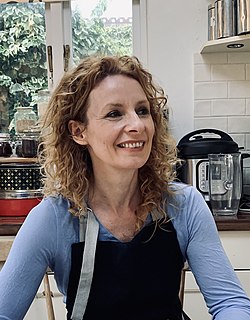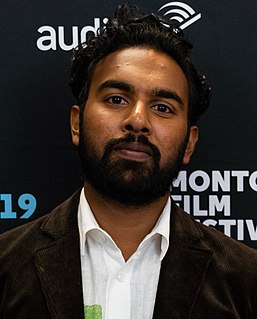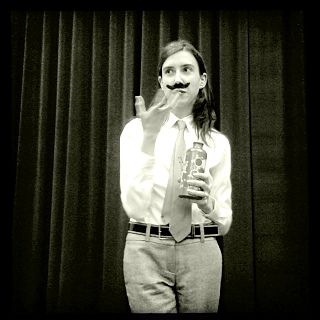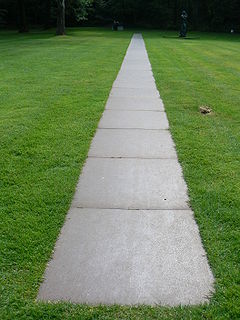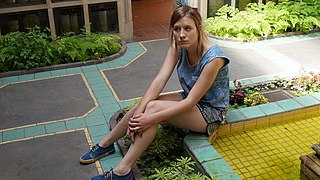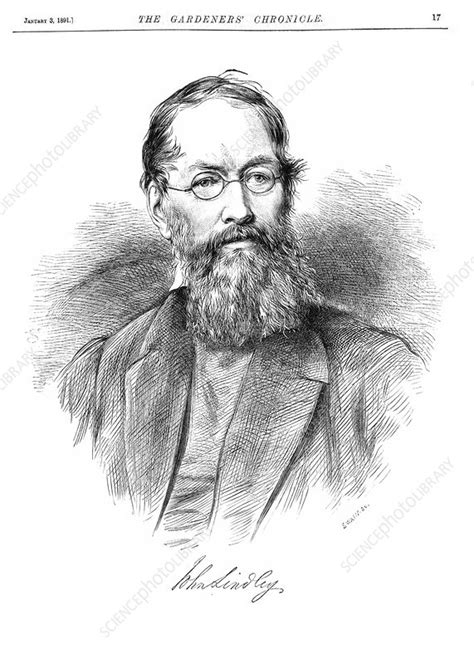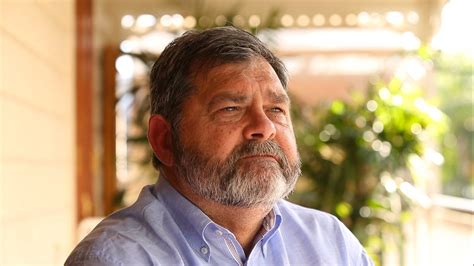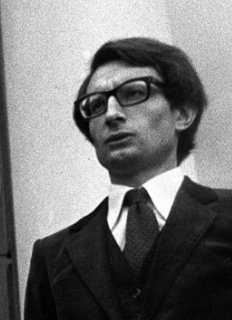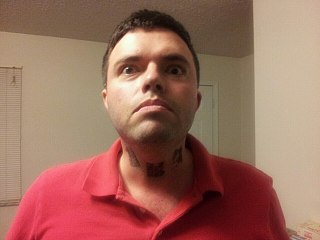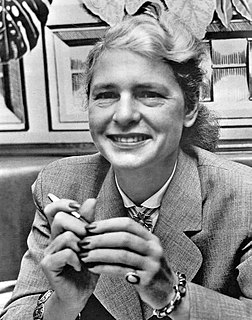Top 327 Essay Quotes & Sayings - Page 5
Explore popular Essay quotes.
Last updated on September 19, 2024.
The aim of poetry, it appears, is to fill the mind with lofty thoughts--not to give it joy, but to give it a grand and somewhat gaudy sense of virtue. The essay is a weapon against the degenerate tendencies of the age. The novel, properly conceived, is a means of uplifting the spirit; its aim is to inspire, not merely to satisfy the low curiosity of man in man.
The great American food writer M. F. K. Fisher once wrote an essay called 'The Anatomy of a Recipe.' To have a good anatomy, in her view, a recipe should have a sense of logical progression. She despaired of recipes with 'anatomical faults,' where the reader is told to make a cake batter and only then to grease the loaf pans.
Invisible Beasts is a strange and beautiful meditation on love and seeing, a hybrid of fantasy and field guide, novel and essay, treatise and fable. With one hand it offers a sad commentary on environmental degradation, while with the other it presents a bright, whimsical, and funny exploration of what it means to be human. It's wonderfully written, crazily imagined, and absolutely original.
The essay community should have hundreds of anthologies from hundreds of different perspectives that are constantly introducing us to new writers, new work, and new visions for our genre. The whole spirit of these anthologies is that there should never be a last word in how essays are interpreted or what they can be.
Writing has to do with truth-telling. When you're writing, let's say, an essay for a magazine, you try to tell the truth at every moment. You do your best to quote people accurately and get everything right. Writing a novel is a break from that: freedom. When you're writing a novel, you are in charge; you can beef things up.
I am careful about fiction. A novel is not a tract or an essay. If I want to write about land reforms, or Hindu-Muslim relations, or position of women, I can do it as it affects my characters as in 'A Suitable Boy.' I could only write about issues specifically through essays. But I'll do that only if I have something worthwhile to say.
Now the truth is, writing is a great way to deal with a lot of difficult emotional issues. It can be very therapeutic, but that's best done in your journal, or on your blog if you're an exhibitionist. Trying to put a bunch of *specific* stuff from your personal life into your story usually just isn't appropriate unless you're writing a memoir or a personal essay or something of the sort.
The part of my education that has had the deepest influence wasn't any particular essay or even a specific class, it was how I was able to apply everything I learned in the library to certain situations in my life. . . The library takes me away from my everyday life and allows me to see other places and learn to understand other people unlike myself.
Help" is a prayer that is always answered. It doesn't matter how you pray--with your head bowed in silence, or crying out in grief, or dancing. Churches are good for prayer, but so are garages and cars and mountains and showers and dance floors. Years ago I wrote an essay that began, "Some people think that God is in the details, but I have come to believe that God is in the bathroom.
After readinf some essay on the nature of human fallibility, I was very aware that we are the recipients of a huge amount of discovery over the last century. Medicine exemplifies this. And that has transitioned us from a world in which people's lives were mostly governed by ignorance to one that's constrained by ineptitude. A century ago, we didn't know, for instance, what diseases afflicted us, what their nature really was, or what to do about them. And that has changed.
There are a lot of college writing textbooks that will include essays and short stories, and after reading the story or essay, there will be questions such as "Have YOU Had any experience with a pedophile in YOUR family?" or "When was the last time you saw YOUR mother drunk?" and they're just really good at prompting stories. You answer the question, and sometimes that can spring into a story.
It's an essay that Sigmund Freud wrote about E.T.A. Hoffman's short story called "The Sandman" where someone mistakes an inanimate object for a living, breathing human being. And one of the things that Sigmund Freud really felt was that in modern life people assign qualities to objects around them that may not exist there whatsoever.
A few more days, and this essay will follow the Defensio Populi to the dust and silence of the upper shelf... For a month or two it will occupy a few minutes of chat in every drawing-room, and a few columns in every magazine; and it will then be withdrawn, to make room for the forthcoming novelties.
From the essay "Twenty-five Things People Have a Shocking Capacity to Be Surprised by Over and Over Again" 1. Journalists sometimes make things up. 2. Journalists sometimes get things wrong. 3. Almost all books that are published as memoirs were initially written as novels, and then the agent/editor said, This might work better as a memoir. 6. Freedom of the press belongs to the man who owns one.
I believe that almost all important, useful ideas are simple. Peter Whittle has recently put it nicely in an autobiographical essay. "If a piece of work is heavy and complicated then it is wrong." . . . Some writers feel that to express their ideas in simple terms is degrading. Some use complexity to disguise the paucity of their material. In fact, simplicity is a virtue and when, as here, it is both original and useful, it can represent a real advance in knowledge.
If you look around at the news industry, there are more and more sites clamoring for that kind of writing, whether it's an Ideas section or personal essay series or longform. Readers are hungry for it. It's like prestige TV, though; it's execution-dependent. You have to figure out the right advertiser or sponsor, and you have to deliver, you can't just feed the beast.
I had tried writing novels for many years, and they always escaped me. For a long time, I thought, 'It's just not in me to write a novel. It's not something I'm able to do.' It seemed like everything I wrote naturally ended at the bottom of page three. A picture book, three pages; an essay, three pages.
Media reporters have pointed out that the paragraphs in my Time column this week bear close similarities to paragraphs in Jill Lepore's essay in the April 22nd issue of The New Yorker. They are right. I made a terrible mistake. It is a serious lapse and one that is entirely my fault. I apologize unreservedly to her, to my editors at Time, and to my readers.
We may... have to relinquish the notion, explicit or implicit, that changes of paradigm carry scientists and those who learn from them closer and closer to the truth... The developmental process described in this essay has been a process of evolution from primitive beginnings-a process whose successive stages are characterized by an increasingly detailed and refined understanding of nature. But nothing that has been or will be said makes it a process of evolution toward anything.
I understood that you would take the Human Race in the concrete, have exploded the absurd notion of Pope's Essay on Man, [Erasmus] Darwin, and all the countless Believers-even (strange to say) among Xtians-of Man's having progressed from an Ouran Outang state-so contrary to all History, to all Religion, nay, to all Possibility-to have affirmed a Fall in some sense.
I believe that a work of art, like metaphors in language, can ask the most serious, difficult questions in a way which really makes the readers answer for themselves; that the work of art far more than an essay or a tract involves the reader, challenges him directly and brings him into the argument.
All I could think of was that the teachers must've found the illegal stash of candy I'd been selling out of my dorms room. Or maybe they'd realized I got my Essay on Tom Sawyer from the Internet without ever reading the book and now they were going to take away my grade. Or worse, they were going to make me read the book.
This Excellent Mathematician having given us, in the Transactions of February last, an account of the cause, which induced him to think upon Reflecting Telescopes, instead of Refracting ones, hath thereupon presented the curious world with an Essay of what may be performed by such Telescopes; by which it is found, that Telescopical Tubes may be considerably shortened without prejudice to their magnifiying effect. On his invention of the catadioptrical telescope, as he communicated to the Royal Society.
I never start with what lots of people think of as a subject or a theme. They're school words, not art words. So, writing essays busts my arse because the art is in addressing the subject. I find it really difficult and monstrously time-consuming. In an essay I need to employ my imagination but it's indentured in a way it's not when I'm free to make everything up.
Indeed, theological discourse offers its strange jubilation only to the strict extent that it permits and, dangerously, demands of it wokman that he speak beyond his means, precisely because he does not speak of himself. Hence the danger of a speech that, in a sense, speaks against the one who lends himself to it. One must obtain forgiveness for every essay in theology. In all senses.
I always listen to music when I write! I basically make a playlist for every essay; sometimes it's just one song, or three songs, over and over and over. I sort of find the emotional pitch of the piece, and then match music to it, and then the music becomes a shortcut to the feeling, so I can enter it and work anywhere: on planes, cafes, at work, the train.
The absence of romance from my history will, I fear, detract somewhat from its interest; but if it be judged useful by those inquirers who desire an exact knowledge of the past as an aid to the interpretation of the future, which in the course of human things must resemble if it does not reflect it, I shall be content. In fine, I have written my work, not as an essay which is to win the applause of the moment, but as a possession for all time.
Whereas if you were writing an op-ed piece or an essay, somebody would be asking, "What's your point?" With poetry you can stay in a moment for as long as you want. Poetry is about metaphor, about a thing standing in for something else. It's the thing that opens out to something else. What that something else is changes for readers. So what's on the page - it falls away.
The Babson Institute, which is now an actual university, was started by this guy [my father] who also had a problem with believing in gravity. And so he started the Babson Institute in New Boston, New Hampshire, which then moved to Gloucester. Each year they have a competition of one thousand dollars for one thousand words of an essay on gravity. That's the way they do it.
Memoir is trustworthy and its truth assured when it seeks the relation of self to time, the piecing of the shards of personal experience into the starscape of history's night. The materials of memoir are humble, fugitive, a cottage knitting industry seeking narrative truth across the crevasse of time as autobiography folds itself into the vast, fluid essay that is history. A single voice singing its aria in a corner of the crowded world.
[He Stopped Loving Her Today] is all about the experience of being alive and the thought process of consciousness, and then you have these polemical essay-type things going on for a couple decades now. Some of these music books are where you're going to see an anecdote of a person behaving without some kind of commentary.
The relevant features of scientific practice often have mundane explanations which don't point to any deep metaphysical moral. (Thus it would simply be messy and pointless for the chemists to essay physical reductions, or for the biologists to offer number-free explanations. It's a weird kind of science-worship that views these practical considerations as clues to the nature of reality.)
I wrote an essay too, and mine started something like, "When I was asked to contribute to this book, I said, 'I could do a piece on [Larry] Kramer as a pain in the ass, but I suppose you have too many of those, as it is.'" And Sarah's began something like, "When I read about America's angriest AIDS activist, I can't believe they are talking about my sweet Uncle Larry."
Like when you pick up a book and you don't realize what type of text it is - it could be an essay, a novel, a biography - and at one point you realize you don't know where, as a reader, you want to be. Where are you going with this text? What is the goal? How are you supposed to interpret what you're reading? And people's responses vary - some dislike it, and are put off by the confusion, the lack of comprehension.
In his essay 'Self-Reliance' Emerson wrote, 'Whoso would be a man must be a nonconformist.' The Apostle Paul reminds us that whoso would be a Christian must also be a a nonconformist. Any Christian who blindly accepts the opinions of the majority and in fear and timidity follows a path of expediency and social approval is a mental and spiritual slave.
Eugene Wigner wrote a famous essay on the unreasonable effectiveness of mathematics in natural sciences. He meant physics, of course. There is only one thing which is more unreasonable than the unreasonable effectiveness of mathematics in physics, and this is the unreasonable ineffectiveness of mathematics in biology.
I picked such seemingly disparate essays, I thought it was important to say what was the guiding principle in the selection rather than focus on any one essay. I reached for some principle that had been subconscious in me and lifted it into consciousness. Authenticity and sincerity were the most important unifying principles of all these apparently different essays.
I discovered that I had, in the past two decades, written a far greater amount in the essay form than I remembered. Certainly I have written enough of it to demonstrate that I harbor no disdain for literary journalism or just plain journalism, under whose sponsorship I have been able to express much that has fascinated me, or alarmed me, or amused me, or otherwise engaged my attention when I was not writing a book.
In the critic's vocabulary, the word "precursor" is indispensable, but it should be cleansed of all connotations of polemic or rivalry. The fact is that every writer creates his own precursors. His work modifies our conception of the past, as it will modify the future." -- Essay: "Kafka and his Precursors
What keeps me motivated to create new music is the joy of songwriting. The joy of being creative. The joy of writing a poem or essay. Writing anything. I just love writing, whether it is music or words. I just didn't need to share it for the last 18 years. When you share it, it brings on other things, which is good.
The key to good worldbuilding is leaving out most of what you create. You, as the author, had damn well better know the where all that dragon food comes from, but that doesn't mean that I, as a reader, want to read a five thousand word essay about you explaining it to me. I don't need to see the math, but I can tell by the details you provide whether or not you've thought these things through to their logical conclusions.
I will not be quoting Hemingway anytime soon, nor will I ever read another one of his books. And if he were still alive, I would write him a letter right now and threaten to strangle him dead with my bare hands just for being so glum. No wonder he put a gun to his head, like it says in the introductory essay.

